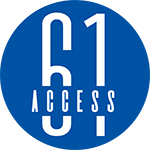Why did we create Access 61?
Legal services are too expensive for asylum seekers.
Too many viable asylum cases are lost because they were not filed in the first year.
Too many viable asylum claims lose because of mistakes that could have been avoided.
https://trac.syr.edu/reports/703
https://trac.syr.edu/reports/736/
We serve immigrants high quality, high speed legal services for affordable prices.
I know how big of an advantage we can offer immigrants in winning their case. Most asylum seekers are in the worst financial position they’ve ever experienced personally. They just walked away from their life and network in their country of origin. They did not have a plan for employment in the United States, because it wasn’t their plan to come here. Their professional network is not in the United States and they often don’t speak English.
Many asylum seekers find legal services too expensive. The fee for an asylum case may represent more than their annual rent. The legal work is often done in a language that is foreign to the asylum seeker. They can’t even read what they are paying for.
“Seeing the look on a person’s face when you quote them $15,000 for representation in their asylum case and they don’t have the money kills me. That’s why I started thinking about Access 61”

A huge benefit of filing for asylum is a work permit. You get it fast after filing the I-589 in asylum cases and it’s life changing financially. But you need to file the I-589 to be eligible for a work permit and the old rules wouldn’t let me as an immigration lawyer help immigrants with this stage of the case unless they retained me for the whole case.
Evidence wins cases: Evidence is what convinces judges and the government. Evidence gets worse over time. Cases need to be worked on soon after an immigrant arrives in the United States. Not being hired to do the case, we can’t begin to collect the evidence. The evidence begins to diminish: witnesses disappear and pass away. Memories fade and change over time. News articles and facebook posts disappear. Photos and messages saved on old phones get lost with the device. Critical pieces of evidence that can win cases can become unavailable.
Cases can drag on for 5-8 years. Attorneys who enter their appearance are committing themselves to do all the work in the case up to trial for as long as it takes. Attorneys have to continue to represent the client even if the client stops paying unless the court lets them out of the case. If the case is accelerated the attorney will have to do all the work without getting paid. Monthly payment plans are expensive for law firms. We have to tally the payments and call clients who are late. We put our clients’ money in our escrow account, which means we may not have access to it for years. Our clients don’t want their money tied up for years, but the system forces this situation.
This awful situation leads to bad decisions. Clients often choose to use notarios, low priced illegal document preparers. Notarios often perform bad work that leads to clients ultimately losing their cases and worse, they can lose their chance to ever get a green card. Some intrepid folks do it themselves. This rarely results in good work, however. The difficulty of preparing the I-589 as a document that will serve as the foundation of a winning asylum case is too much for an individual without expertise in immigration law.
The high price of lawyers also ruins many asylum cases because people can’t file them in time. Though there are exceptions, most asylum seekers need to file their petition within one year of coming into the country. High prices keep people from filing timely documents. Delayed filings limit the types of protection that are accessible.
For years, I was deeply disappointed in this situation and tried to think of ways to solve it. For years, I was unable to come up with a solution. Then in 2022, news of the settlement of a lawsuit filed by Northwest Immigrant Right Project on the west coast included a rule change in the immigration courts. This change barely made a minor blip in the immigration press. But I was intrigued.
Over the next 18 months I started incubating a limited scope I-589 product within my law firm. Our team began filing limited scope applications in court for clients. We started to fall in love with the idea. Suddenly we were helping clients quickly and for much lower prices. The limited scope product was taking off and it was awesome. At the same time, clients were confused by the limited and full scope representation that Jaskot.law was offering. The difference between the two services was confusing for staff as well. We also began to run into capacity problems.
Enter Access 61
We found that it’s clearer to clients and staff if our limited scope representation lives in its own home with its own brand. A company that only did limited scope petitions could focus on the unique resources and staffing needed to support its development.
And so, Access 61 was born.

